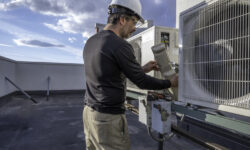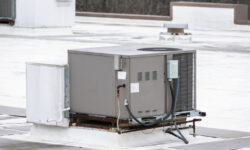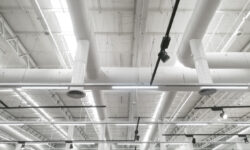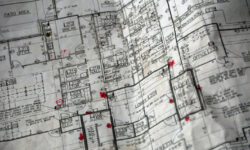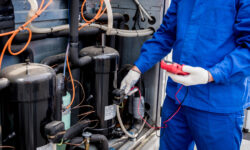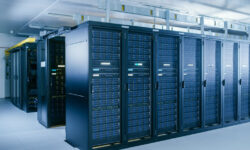When the Maryland summer starts, heat and humidity should be at the forefront of a building manager’s mind. Managers will often consider the heat but underestimate the humidity. Even without high temperatures, moisture-rich air can negatively affect the workplace. Humidity can cause workers to feel tired and make it hard to breathe, quickly weakening morale. How do offices end up with high humidity?
Read more →Your heating and cooling system may not be the most glamorous part of your building, but when it stops working, it’s definitely the most important! Annual air conditioner maintenance can ensure that you don’t have big, expensive emergency repairs when the temperatures soar. There are four key reasons you should never skip your commercial annual air conditioner maintenance.
Read more →Due to their size, commercial buildings require a more extensive HVAC system than residential homes. Some commercial structures have their HVAC systems on the side or back of the building. Others take advantage of large rooftop spaces by using rooftop units, commonly referred to as RTUs. This can give property owners more valuable ground-level real estate for parking or landscaping features.
Read more →Anyone who owns a commercial building knows that ductwork is an integral part of the property’s operations. In order to operate at maximum efficiency, your HVAC ductwork needs to be designed, sized, and installed correctly. Proper duct size is all too often an overlooked feature of commercial HVAC systems. The role that duct sizing and material play in maintaining a safe, comfortable environment should not be underestimated. Having the right size and material for your ducts will maintain comfortable conditions, improve indoor air quality, minimize energy losses, and lower your heating and cooling bills, as well.
Read more →Buying a new commercial HVAC system is one of the most important purchases you can make for your business. It’s your responsibility to choose an HVAC system that provides seamless comfort for clients, customers, and employees. However, choosing the right commercial HVAC system can be overwhelming with the number of choices to pick from. For this reason, you must understand what factors to consider when looking for a new HVAC system.
Read more →Data centers represent some of the largest individual electricity users globally, accounting for roughly 3% of all consumption. That number continues to grow year over year. As such, every data center has a responsibility to be as efficient as possible. Much of that efficiency is going to come down to effective data center HVAC design.
Read more →Air compressors play important roles in many commercial and industrial systems. There are two main types: oil-free air compressors and oil-flooded air compressors. Both see wide use in a variety of industries, but which is suitable for your application? Is an oil-free air compressor best in every situation?
Read more →Data centers power the internet; they house the number of servers where the internet’s websites and information are stored. These structures help ensure the internet runs, and HVAC systems are crucial to keeping the data centers running. HVAC systems serve an essential function in data centers: they control the air, temperature, and humidity to run the computer servers that power the internet.
Read more →According to the EPA, heating and cooling systems account for 40%-50% of the energy consumption in the typical hotel room. The type of HVAC system you choose for your hotel rooms will not only affect your energy bills but also contribute significantly to the comfort of your guests.
Read more →Sunny days, especially during the hot summer months, can cause your building’s HVAC system to work overtime. What can you do to keep your utility bills down when temperatures rise?
Read more →
